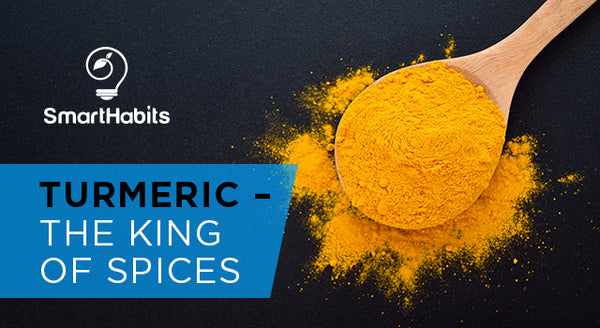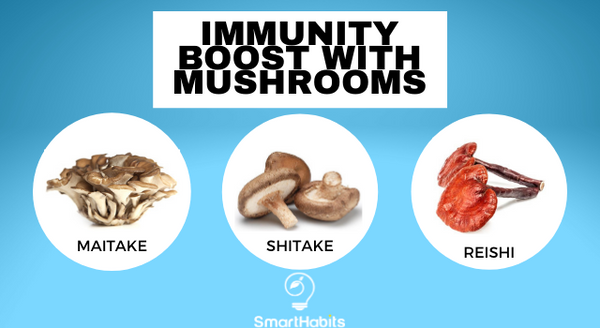Keeping a quick mind and a sharp memory as we age is important to most people. While maintaining cognitive function is generally agreed to be an significant goal as we age, many people do not know how to support their brain health. Brain games have become a popular tool to stay mentally sharp, but there are other, more foundational diet and lifestyle related steps to take first. These are essential to optimal mental functioning and preventing age-related memory decline. The approach to brain health should be multifaceted which includes proper nutrition, physical activity, mental stimulation and a healthy social life. Below we explore some of the lifestyle and dietary strategies to keep the brain healthy and functional.
Physical Activity
The importance of exercise on brain health cannot be overstated, yet exercise is often an area of brain health that is neglected in the young and elderly alike. Exercise increases the blood flow and heart rate which translates into more blood flow into the brain, which will lead to better brain functioning (7). Blood flow increases nutrient and oxygen delivery, while simultaneously removing metabolic wastes which impair cellular health.
A common cause of cognitive decline, impaired concentration, and brain fog is underlying depression. Research has shown that exercise can be as effective as therapy and certain antidepressant therapies for the treatment of depression (7).
Sleep
Sleep is one of the activities that people take for granted or think little about until they are having trouble in this area. Quality sleep enables people to function at their best and think clearly, while lack of restorative sleep can affect all aspects of an individual’s wellbeing including issues focusing, brain fog, and fatigue. The amount, type, and quality of sleep is closely tied to both mental and physical health. Lack of sleep is linked to increased risks of dementia, specifically Alzheimer’s disease. In fact, good sleep can decrease the risk of developing Alzheimer’s disease by 80% (12). The elderly are especially prone to sleep problems. Research may provide strategies to help this population, along with the general public get a better night’s sleep. Ideas include:
- Utilize your bedroom for sleeping only, not watching television or reading. Create a singular and strong association between sleep and your bed. This will help you fall asleep more quickly and sleep more soundly.
- Sleep in complete darkness and avoid watching TV or using your phone before bedtime as the light from these devices disrupts your circadian rhythm.
- Ensure the bedroom is not too warm as becoming overheated at night can disrupt sleep.
- If you wake during the night and cannot fall back asleep do not stay in bed and read or watch television but get up and go in the other room to do these activities until you feel tired again.
- Create a regular, scheduled time for going to bed and getting up in the morning to help set your body clock, allowing you to fall asleep easier and wake up more refreshed.
- If needed, take an effective sleep aid that helps you achieve a deeper sleep
It has long been said that napping during the day can be linked to increased insomnia and sleep disturbances at night. While this may be true for napping in the late evening and for an extended period of time, napping right after lunch and for less than an hour has shown to improve the quality of sleep and physical health. Research has also shown that a short nap (30 minutes) around the lunch period has beneficial effects on brain health including attention and concentration (12).
Social Relationships
Humans are social animals who need and thrive on social interactions. In fact, one prominent theory suggests that the large brains unique to humans developed due to the complex social structures and interactions that humans maintain. Is it any surprise that brain health, including memory, would be strongly linked to the types and number of social relationships that we have? Science has shown that having strong relationships are linked to lower incidences of dementia and depression. Social engagement or lack there-of has been linked to everything from the release of the amount of stress hormones released by the body to the total life expectancy of an individual (11).
The development of virtual networks such as Facebook, twitter, and email has in many ways made the formation and maintenance of social networks easier. While there is mixed research as to the benefits and downsides of virtual social networks it is hard to ignore that when utilized as an adjunct, not a replacement, for in-person social interactions the use of virtual social networks are beneficial to human cognition (11).
There are many ways to maintain and even build strong social networks throughout life. Regularly calling and visiting family members and friends as well as joining local groups that share similar interest are just a few ways one can build strong social networks. The development of intergenerational relationships can be extremely valuable in staying cognitively sharp for both parties involved because interacting with individuals that have different perspectives and life experiences allows each to broaden their horizons and think in new ways.
Diet
Diet has been increasingly linked to brain health and functioning. Research has primarily been conducted on the cardiovascular and mental benefits of the Mediterranean diet. The Mediterranean diet when followed has been shown to decrease cardiovascular risk and the risk of developing Alzheimer’s disease. This diet is high in fats derived from fish and nuts and low in saturated fats derived from red meat. The Mediterranean diet also emphasizes eating many vegetables, which will aid in weight reduction. Obesity, Metabolic syndrome, and diabetes are all associated with development of cognitive impairments (12).
Antioxidants
Oxidative stress and inflammation are two key components to all aspect of aging, including brain health. These two processes disturb neurotransmitter balance - the chemicals our brains use to send signals for emotion, mood, and memory, damage neurons in the brain, and prevent optimal brain functioning. An important part of improving brain health is increasing consumption of antioxidants, which are able to quench oxidative stress and inflammation. Inflammation is associated with cognitive decline and diets and foods that decrease inflammation will improve and prevent the decline of memory and brain function (2,8).
The Top Antioxidants Foods Are (2,8):
- Purple/Red Grapes
- Blueberries/Blackberries
- Raspberries/Strawberries
- Cranberries
- Artichoke
- Red Beans/Pinto Beans
- Brazil Nuts
- Dark Leafy Greens
- Sweet Potatoes
- Wild Caught Fish
B Vitamins
B Vitamins are essential for numerous cellular reactions in the body, including in the brain. Folate (B9) and B12 are essential for the methylation cycle, which is needed for the production of all neurotransmitters which are used as signaling molecules in the brain for mood, emotions, alertness, sleep, and memory. Lower folate or B12 status has been associated with poorer cognition. Optimal intake of both of these vitamins can help prevent deficiency-related cognitive decline (9).
The best sources of folate are uncooked leafy greens, as folate will degrade with cooking. B12 is found exclusively in animal sources; therefore vegans and vegetarians are at risk for deficiency (9).
Nutrient deficiencies, such as niacin (B3) negatively affect brain health and can produce symptoms which mimic dementia. Niacin stimulates cellular metabolism which is vital for the health of neurons, as well as prevent inflammatory processes of neurons. Studies show that adequate intake of niacin - 16mg per day for men and 14mg per day for women, or supplementation when deficient can improve memory, mood, and cognition (4,9,10).
The best sources of niacin are animal sources, and include (4):
- Liver
- Chicken & Turkey
- Pork & Beef
- Anchovies & Tuna
Plant sources include (4):
- Avocados
- Mushrooms
- Green Peas
Fatty Acids
Our brains are made up of a large amount of fats. The outer covering of our nerves which is what makes our thinking fast is composed of fats. This is why increasing the correct type of fatty acids through dietary changes or supplementation can have beneficial effects on brain health and cognition. You can think about two broad categories of fatty acids when thinking about brain health, omega-3 and omega-6. Ideally, we want a ratio of four parts omega-3 for every one part omega-6. This is because omega-6 is associated with inflammatory processes. This is not to say that Omega-6 is not important, we just need to regulate how much we get compared to omega-3 (12). Common sources of each are listed below:
Omega-3:
- Cod-liver oil
- Sardines
- Halibut
- Salmon
Omega-6:
- Safflower oil
- Sunflower oil
- Borage oil
Brain health is a growing concern for many people, and it becomes especially crucial during the aging process. There are numerous factors involved in brain health, which are rooted in lifestyle and dietary choices. Keeping the brain sharp requires a healthy, anti-oxidant rich diet, daily physical activity, fulfilling social relationships as well as restorative sleep.
In our part II of this blog, we discuss how nootropics, a term used to describe substances such as herbs and supplements can enhance cognition, can be a practical addition to prevent cognitive decline as well as promote optimal cognitive performance.
REFERENCES
- Aguiar, S., & Borowski, T. (2013). Neuropharmacological review of the nootropic herb Bacopa monnieri. Rejuvenation research, 16(4), 313-326.
- Grayson-Mathis, C. (2005, April 1) 20 Common Foods With the Most Antioxidants. Retrieved from WebMD website: https://www.webmd.com/food-recipes/20-common-foods-most-antioxidants
- Hillhouse, B., Ming, D. S., French, C., & Towers, G. H. (2004). Acetylcholine esterase inhibitors in Rhodiola rosea. Pharmaceutical Biology, 42(1), 68-72.
- Julson, E, (2018, October 5), 16 Foods That Are High In Niacin. Retrieved From: https://www.healthline.com/nutrition/foods-high-in-niacin
- Khanum, F., Bawa, A. S., & Singh, B. (2005). Rhodiola rosea: a versatile adaptogen. Comprehensive reviews in food science and food safety, 4(3), 55-62.
- Kumar, G. P., Anilakumar, K. R., & Naveen, S. (2015). Phytochemicals Having Neuroprotective Properties from Dietary Sources and Medicinal Herbs. Pharmacognosy Journal, 7(1).
- Kvam, S., Kleppe, C. L., Nordhus, I. H., & Hovland, A. (2016). Exercise as a treatment for depression: a meta-analysis. Journal of affective disorders, 202, 67-86.
- Magee, E. (2010) 10 Antioxidant Super Foods Retrieved from WebMD website: https://www.webmd.com/food-recipes/features/10-super-foods#3
- McGarel, C., Pentieva, K., Strain, J. J., & McNulty, H. (2015). Emerging roles for folate and related B-vitamins in brain health across the lifecycle. Proceedings of the Nutrition Society, 74(1), 46-55.
- Prousky, J. (2011). Treating dementia with vitamin B3 and NADH. Journal of Orthomolecular Medicine, 26(4), 163.
- Ristau, S. (2011). People do need people: Social interaction boosts brain health in older age. Generations, 35(2), 70-76.
- Tanaka, H., & Shirakawa, S. (2004). Sleep health, lifestyle and mental health in the Japanese elderly: ensuring sleep to promote a healthy brain and mind. Journal of psychosomatic research, 56(5), 465-477.
- Yang, G., Wang, Y., Tian, J., & Liu, J. P. (2013). Huperzine A for Alzheimer’s disease: a systematic review and meta-analysis of randomized clinical trials. PloS one, 8(9), e74916.
Statements made on this website have not been evaluated by the U.S. Food and Drug Administration. Information provided by this website or this company is not a substitute for direct, individual medical treatment or advice. It is the responsibility of you and your healthcare providers to make all decisions regarding your health. SmartHabits recommends that you consult with your healthcare providers regarding the diagnosis and treatment of any disease or condition. Products sold on this website are not intended to diagnose, treat, cure, or prevent any disease.




